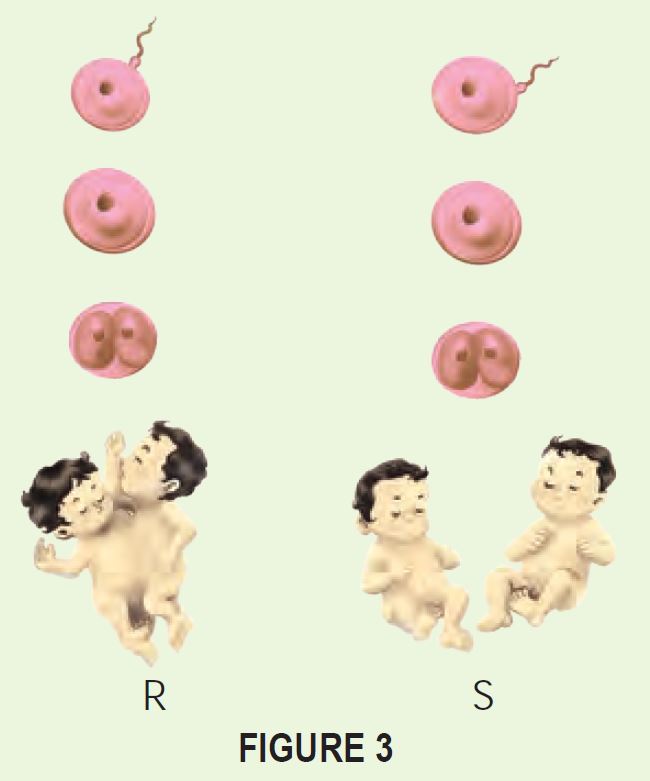A woman having problems getting pregnant needed an injection of hormone X from a specialist. Hormone X has the same function as the luteinizing hormone (LH). After a certain period, the woman was pregnant.
Explain how the hormone X injection can help the woman to get pregnant.
Answer:
• Since the role of hormone X is similar to hormone LH, hormone X is able to stimulate follicle development together with FSH that stimulates ovulation. Therefore, the woman has a possibility of becoming pregnant.
• Ovum is fertilised by sperm to form a zygote.
• After ovulation, the Graafian follicle forms a corpus luteum.
• Corpus luteum is stimulated to secrete progesterone and oestrogen.
• Progesterone and oestrogen stimulate the endometrial tissue to become thick, folded and rich with blood capillaries as a preparation for zygote implantation.

(a) Describe the process of sperm production in the testes.
(b) Figure 3 shows the formation of two sets of twins. Compare the formation of the twins R and S.
Answer:
(a)
The testis contains seminiferous tubules that consists of primordial germ cells. Primordial germ cells undergo a series of mitotic divisions to produce many diploid spermatogonia.
Spermatogonia grow into primary spermatocytes. Each primary spermatocyte then divides by meiosis I to produce a pair of secondary spermatocytes which are haploid. Each pair of secondary spermatocytes will divide by meiosis II to produce four haploid spermatids. Finally, spermatids differentiate to become sperms.
(b)(i)
R: Siamese twins: Identical twins
Similarities:
• An ovum is fertilised by a sperm to form a zygote.
• Both twins have the same genetic constitution.
• Both twins are of the same sex, that is, both are either boys or girls.
Differences:
• For twins S, blastocyst divides completely into two, but in twins R, complete division did not occur.
• Twins S are separated from each other fully, but twins R are attached at certain parts of the body.